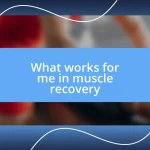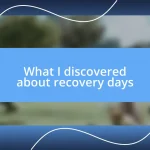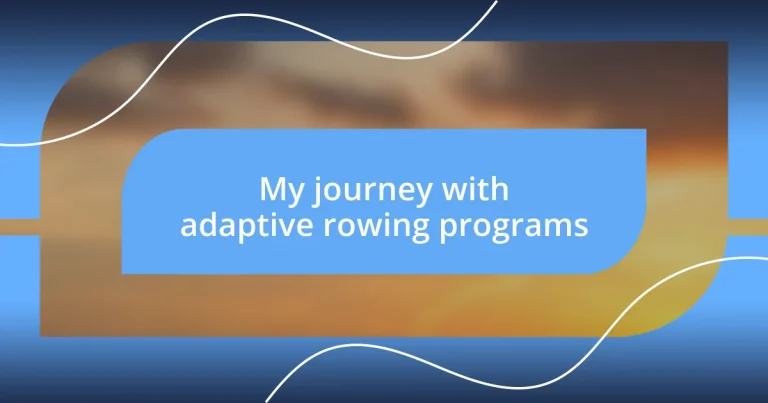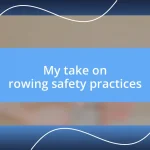Key takeaways:
- Adaptive rowing programs enhance accessibility for individuals with disabilities, promoting emotional growth and a sense of freedom on the water.
- Participants experience physical improvements, such as increased strength and coordination, while also cultivating significant social connections and a supportive community.
- Overcoming challenges is central to the experience, with camaraderie and encouragement helping individuals transform their fears into newfound confidence and achievements.
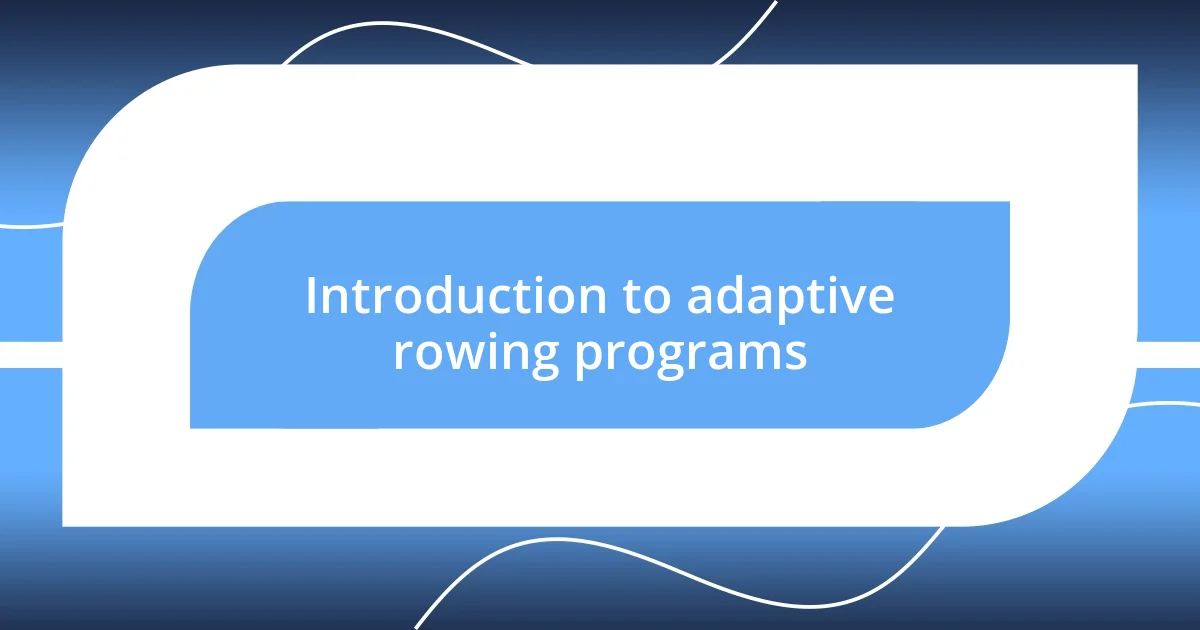
Introduction to adaptive rowing programs
Adaptive rowing programs are designed to make the sport accessible to individuals with disabilities, offering a unique opportunity to connect with water and nature. I remember the first time I watched a friend, who had recently become a paraplegic, step into a rowing shell. The look of determination on his face was something I’ll never forget—not just because he was trying something new, but because he was reclaiming a sense of freedom on the water.
These programs often use specialized equipment, such as adaptive rowing shells and support systems, ensuring that everyone can participate safely and effectively. Have you witnessed the camaraderie that forms within rowing teams? The joy that fills the air as participants share their stories and support each other is truly transformative. It’s not just about the physical aspect; it’s about building confidence and friendships that last well beyond the water’s edge.
Participating in adaptive rowing can lead to profound emotional growth. I’ve seen individuals blossom from hesitant beginners to determined athletes, pushing their limits and embracing life’s challenges. Isn’t it fascinating how a simple act of rowing can empower someone to feel invincible? The sense of achievement I’ve witnessed is a reminder of how adaptive sports can change lives, one stroke at a time.
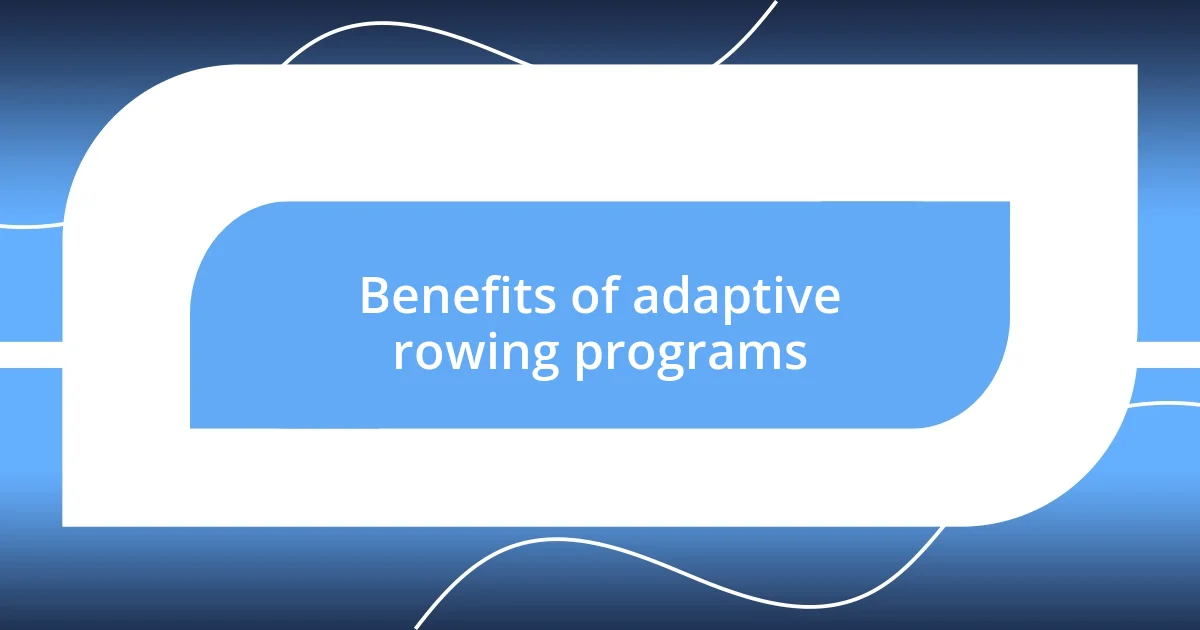
Benefits of adaptive rowing programs
The benefits of adaptive rowing programs extend beyond physical exercise. For many participants, I’ve observed that the water offers a unique sense of tranquility and liberation. One afternoon, while rowing alongside some enthusiastic team members, I couldn’t help but feel the collective joy as we glided through the waves. It’s incredible how being on the water can create a feeling of unity, allowing individuals to momentarily forget their struggles and, instead, celebrate their abilities.
Engagement in adaptive rowing has also been shown to improve physical health. I’ve seen firsthand how rowing builds strength and enhances coordination. After just a few weeks in the program, a participant who initially struggled with balance discovered newfound stability not only in the boat but also in their daily life. Isn’t it astounding how adaptive sports can translate into real-world improvements in mobility and quality of life?
Additionally, adaptive rowing fosters social connections that can be life-changing. During one memorable regatta, I witnessed friendships bloom between participants from diverse backgrounds. They shared laughter, camaraderie, and an understanding that transcends their individual circumstances. It reminded me that through sport, we create a community rooted in support and encouragement—one that lifts each other up and empowers every member to thrive.
| Benefit | Description |
|---|---|
| Physical Health | Improves strength, balance, and overall coordination. |
| Emotional Growth | Enhances confidence and self-esteem through achievement. |
| Social Connections | Builds a supportive community and lasting friendships. |
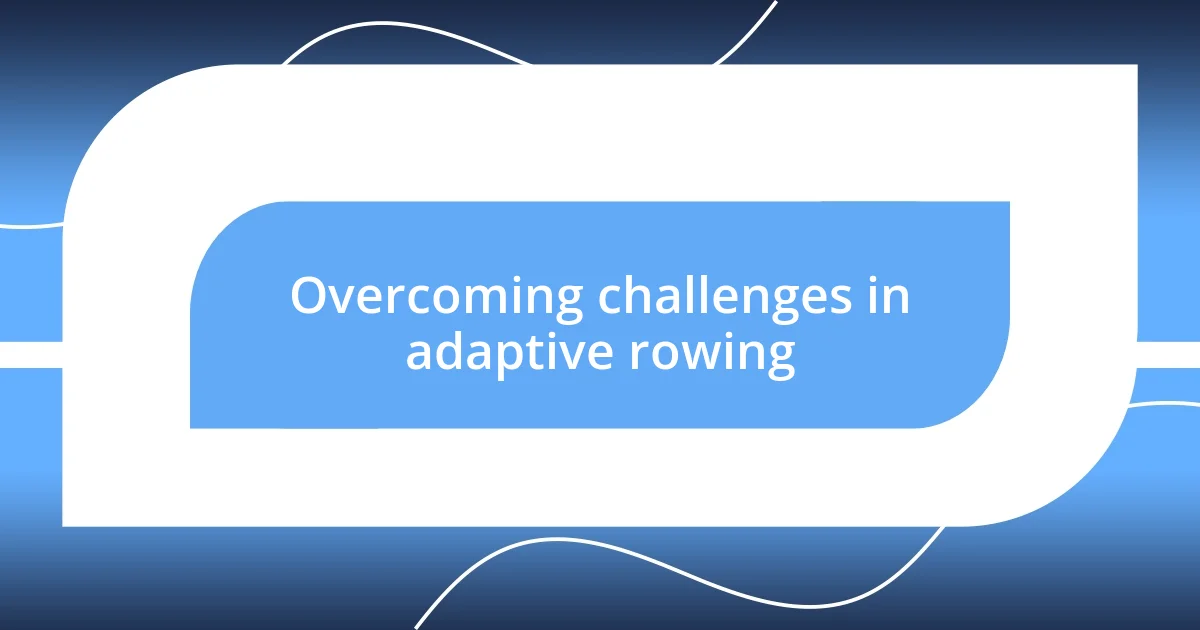
Overcoming challenges in adaptive rowing
The challenges faced in adaptive rowing can be intimidating. I recall the first time my friend Sarah joined a team; she was anxious about how her wheelchair would fit into the traditional rowing setup. Seeing her face change from uncertainty to determination as she navigated the adjustments was truly inspiring. Those moments of doubt often last only a heartbeat—the support from teammates can make all the difference.
As we shared our experiences, I found that many participants faced their own hurdles, whether physical or emotional. I once met Mike, who initially shied away from the water due to fear of not being able to keep up. With encouragement and a few tailored adaptations, he eventually discovered the thrill of rowing. Isn’t it remarkable how fear can transform into exhilaration when given the right support?
Adaptation is vital; it paves the way for personal growth. I will never forget witnessing a teammate, who had suffered a stroke, mastering her paddling technique after weeks of effort. The look of pride on her face was priceless. Overcoming these challenges isn’t just about completing a race; it’s about forging resilience and unlocking a new realm of possibilities that many never thought achievable. Have you ever experienced a moment when overcoming an obstacle made you feel truly alive?

